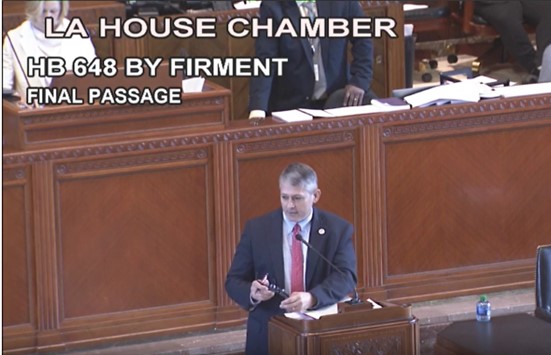By Baptist Message staff
BATON ROUGE, La. (LBM) – The Louisiana Senate Committee on Health and Welfare voted 5-4, May 24, to reject HB 648, the “Stop Harming Our Kids Act,” thereby defeating a bill that would have prevented children under the age of 18 years old from being subjected to chemical castration and other permanent procedures related to transgender transitioning.
The bill specifically would have prohibited “healthcare professionals from knowingly committing any of the following acts that attempt to alter a minor’s appearance in an attempt to validate a minor’s perception of his sex if the minor’s perception is inconsistent with his biological sex.” The banned procedures would have included hormone blockers, “prescription or administration of testosterone, estrogen, or progesterone,” and sex reassignment surgeries.
Another key provision in the “Stop Harming Our Kids Act” would have allowed children who were subjected to chemical or surgical transitioning to file lawsuits against the doctors and therapists who approved or performed such procedures. Moreover, the children’s right to sue would have extended until they reached the age of 30 years old.
GLOBALLY
The controversy is international.
After observing a 4,400 percent surge in children with gender confusion, the National Health Services in England warned in October 2022 against medical transition procedures for children because most who identify as transgender are going through a “phase.”
The national medical authorities in France and Finland have made similar conclusions.
Meanwhile, Sweden, which has experienced a 1,500 percent upswing in gender confusion among children, now prohibits “hormonal treatments (i.e., puberty blocking and cross-sex hormones) … in gender dysphoric patients under the age of 16.” Additionally, patients between ages 16 and 18 may only be treated in “clinical trial settings approved by the EPM (Ethical Review Agency/Swedish Institutional Review Board).” The decision was based on the “unexplained” increase among children as well as a “no evidence” that such medical treatments provide any help to gender confused children.
It is noteworthy that gender transition methodologies largely were pioneered in Sweden, and now that country’s National Board of Health and Welfare has determined “risks outweigh the benefits” for children.
USA
In the United States, 22 state legislatures have passed bans against subjecting children to chemical or surgical procedures that permanently alter their bodies to look like the opposite biological sex.
Indeed, Louisiana is the only Southern state to legislatively fail to protect vulnerable children, causing transgender activists to declare that the state is now an “oasis” in the South for children to undergo transition.
Importantly, such procedures have become a financial boon for transgender clinics and their providers.
A 2022 undercover video showed a doctor with the Vanderbilt University Medical Center bragging about the transgender clinic as a “big money maker.” Dr. Shayne Taylor explained that a “chest reconstruction” surgery generates $40,000 in revenue per patient, and that “routine hormone treatment … can bring in several thousand dollars … and actually makes money for the hospital.”
LOUISIANA
There is now a move to overturn the Senate committee’s action, which has been attributed to “pressure from the governor … to kill the bill” by the family and marriage advocacy group, Louisiana Family Forum.
The effort will hinge on Senate Rule 13.11, which allows the full Senate to recommit a bill to a different committee for consideration, or to bring the legislation to the Senate floor for a vote. Such a move will need the support of Senate President Page Cortez.
Voters may contact Senator Cortez by phone, (225) 342-2040, to request he support a motion to release HB 648. The same phone number may be used to contact individual senators to ask them to pass HB 648 in a timely fashion.
Prior to coming to the Senate side of the legislature, the “Stop Harming Our Kids Act” was adopted by a margin of 14-3 by the House Committee on Health and Welfare, May 4, and subsequently was approved 71-24 (10 absences) in the House chamber, May 16.
So, if the bill is released for consideration by the full Senate and receives a favorable vote, it would be sent to Governor John Bel Edwards for his signature or veto.




